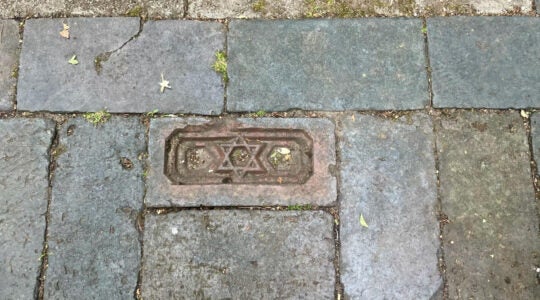Following the devastating earthquake in Nepal, stories began to appear about the State of Israel sending a large medical team to the area. This is not an unusual story. Whenever natural disasters occur, Israeli experts are among the first and among the most competent on the scene.
This is a product of several factors. First, a national Israeli ethic that does not draw enough attention of being a “light unto nations” — being a force for good in the world, particularly during crises.
Second, because Israel has been a repeated target of terrorist attacks on its civilian population, it has learned to master the art of triage. It, therefore, has much to contribute.
And third, the high quality of Israeli medical care is needed and welcomed almost everywhere in the world when tragedy strikes.
Israel’s humanitarian activity the world over, whether in Haiti, Turkey, Romania or other countries, is not limited to its overseas work.
At home, it is an open secret that many highly placed Arabs from countries that routinely denounce the Jewish state and officially will have nothing to do with it, come to Israeli hospitals for sophisticated medical treatment.
Israel’s open humanitarian policy applies to minorities as well. Alone in the Middle East, Israel applies full rights and protections for its gay communities.
And, of course, as is often noted, Israel is the only country in the region, among a sea of authoritarian and Islamic extremist regimes that is a true democracy and is governed by the rule of law and committed to free expression.
So how does all this square with the international community’s assault on Israel’s good name as a human rights violator in its treatment of the Palestinians?
Some go so far as to accuse Israel of behaving in a positive way on some matters to divert attention away from its policies toward the Palestinians. Most notable in this respect are those who accuse Israel of “pinkwashing.” They claim that Israel’s openness to gays is not genuine and merely intended to obscure its oppression of the Palestinians.
Others are not quite so cynical, but still suggest that Israel needs to be isolated and boycotted because of its behavior toward the Palestinians.
What is missing in all this is an effort to understand Israel’s attitude toward the Palestinians through the prism of its overall tolerant and humanitarian record. One doesn’t have to agree with Israel’s actions vis-à-vis the Palestinians to recognize that those actions don’t contradict its overall humanitarian views but are a product of a much more complex relationship with the Palestinians.
In a word, the Palestinians are not simply victims in this conflict, despite the fact that they have suffered aplenty. The continuing aspirations of Palestinian leaders to destroy the Jewish state, the use of terrorism toward that goal, their rejection of numerous opportunities to achieve peace with Israel and a state of their own, their teaching of hate against Israel and Jews — all of these elements generate a complicated response by Israel.
The point here is not to suggest that there should be no criticism of Israeli policies. Israel could do better even with its legitimate security concerns and even with, to say the least, the flawed leadership of the Palestinians with whom Israel has to deal.
Rather, the point is that this remarkable and unique humanitarian side of Israel, most recently expressed in its rescue mission to Nepal, is to a significant extent the real Israel. Yes, it needs to do better with the Palestinians even now.
If the Palestinians would finally abandon their decades-long war against the Jewish state and look for accommodation, compromise, and a true two-state solution, the world would see that Israel’s essential openness, tolerance and humanitarianism would be there for the Palestinians as well.
Abraham H. Foxman is national director of the Anti-Defamation League.
The New York Jewish Week brings you the stories behind the headlines, keeping you connected to Jewish life in New York. Help sustain the reporting you trust by donating today.




